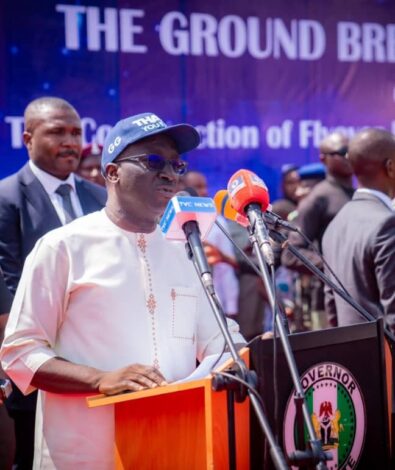Finance Act will become null and void once Tax Reform Bills are passed into law – Taiwo Oyedele

The Chairman of the Presidential Committee on Fiscal Policy and Tax Reforms, Mr. Taiwo Oyedele, has stated that the Finance Act will become “null and void” once the Tax Reform Bills are passed into law by the legislative and executive arms of government.
Oyedele provided this clarification while responding to questions on related tax laws during Wednesday’s stakeholder session for tax consultants and chief financial officers (CFOs) on the PFPTRC’s proposed tax bills, which was virtually monitored by Nairametrics.
He emphasized that Nigerians should not expect an annual Finance Act, as the committee has advised the federal government not to introduce a Finance Act, in 2024.
Why the Finance Act will give way to Tax Reform Laws
Oyedele opined that the Finance Act creates too much uncertainty.
“At the last minute, you just see a new Finance Act, and you have to worry about what it entails. So we feel that if we do this reform for the next five years, we should be fine,” he said.
Oyedele explained that it was possible that all previously enacted Finance Acts have been incorporated into the reform bills, but added, “If they haven’t been incorporated, they become null and void once these bills are passed.”
“So anything you can’t find in these bills does not exist after the bills have been passed,” he added.
Oyedele maintained that everything currently in place has been considered in drafting the new bills.
“So when you see the new (reform) bills and something is not there, it means it’s not meant to exist after the laws have been passed,” he said.
He stressed that the Committee’s timeline recommends a review of the proposed tax bills (if passed into law) every five years.
What you should know
Nairametrics previously reported that in July this year, the Nigerian Senate passed the amendment bill to the 2023 Finance Act, which increased the windfall levy on banks’ foreign exchange revaluation gains from 50% (as proposed by the President Bola Tinubu administration) to 70%.
- The Chairman of the Senate Committee on Finance, Sen. Sani Musa, read the report of the Committee on Finance before it was finally passed.
Sen. Musa stated, “The levy shall be 70% of the realised profits from all exchange transactions by banks. Any bank that fails to pay the windfall profit levy to the service and has not executed the deferred payment agreement by 31st December 2024 shall be liable to pay a windfall levy withheld, in addition to a fine of 10% of the levy withheld or not remitted per annum, plus interest at the prevailing Central Bank of Nigeria (CBN) minimum discount rate.”
- The amendment generated discussions regarding the timing and legality of the proposal, with major tax and advisory bodies weighing in on the issue.
- KPMG Nigeria criticized the 50% windfall tax on banks’ foreign exchange revaluation gains recorded in 2023, suggesting it could lead to legal disputes. The firm highlighted that Nigeria’s tax policy does not support retroactive taxes.
- PwC Nigeria expressed concerns that the unpredictability of the windfall tax, applied to already reported profits for 2023, could discourage investments.
Furthermore, prominent lawyer Dr. Olisa Agbakoba noted that the proposed amendment to the Finance Act was an ill-thought-out policy beyond the scope of the National Assembly. He further stated that if the proposal is passed, the burden will ultimately fall on the banks’ customers.



